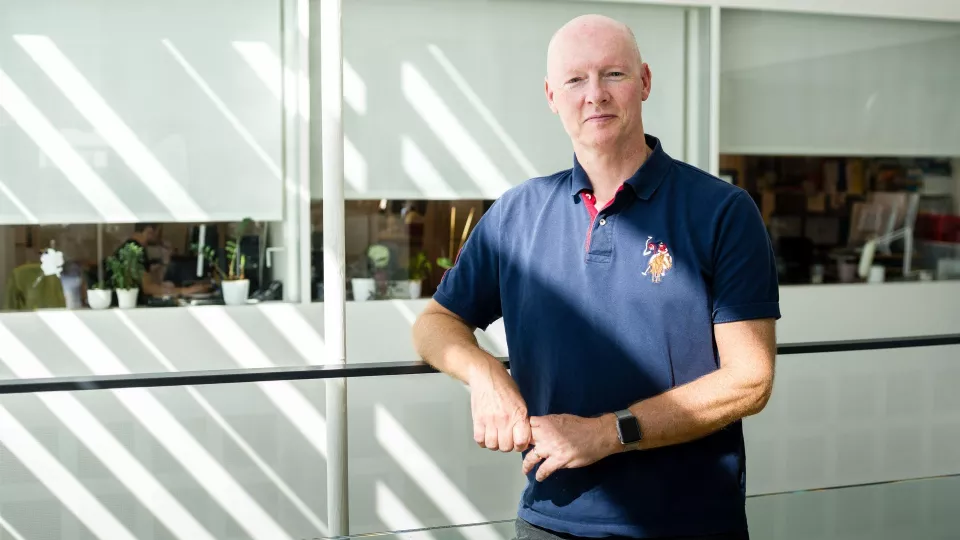Harald Stenmark’s research began with a thesis project on diphtheria toxins, which are toxic proteins produced by diphtheria bacteria.
“When the protein enters the innermost part of the cells, it kills them. The idea was to use the toxin to eliminate cancer cells as well,” says Harald Stenmark.
Interest in the transportation of substances in and out of cells has been a common thread throughout his research since then. The body’s cells are surrounded and compartmentalised by a dynamic membrane, which is constantly affected by signalling and various proteins. Organelles, which are membrane-bound structures that function as the cell’s internal organs, are found inside the cell membrane.
“We are trying to understand the connection between something going wrong in the cell membrane system and how this leads to the development of cancer,” says Harald Stenmark.
Over the years Harald Stenmark has made several groundbreaking discoveries on the mechanisms involved when a cell is transformed into a cancer cell. Focus has been on receptors, which are the specialised recipients on the cell membrane that intercept signals from other cells, and how they integrate with growth factors.
“Growth factors are substances that are secreted from cells and can stimulate other cells to grow or divide. They do this by binding to a receptor on the surface of the new cell, being taken into the cell and then being broken down.”
This launches a signalling pathway inside the cell, which impacts different processes that govern the behaviour and function of the cells. The mechanism involved when the growth factor binds to the receptor, is taken into the cell and transported to endosomes and ultimately broken down in the cell’s digestive system, lysosomes, is significant. Exceedingly high levels of growth factors and their receptors can lead to the cell being overly stimulated, thus resulting in rapid cell division – which can be detrimental and lead to cancer.
“We are consequently very interested in this biochemical process, in other words what happens when the growth factor is broken down. This knowledge is important when diagnosing cancer and in achieving better treatment results for cancer patients,” says Harald Stenmark.
The discovery and mapping of what is known as the FYVE domain was one important contribution. It is found in around 30 proteins in the human body. The research team has shown that the domain binds to a tumour suppressor, PI3P, which is a natural suppressor of tumour growth that impacts the ability of cancer cells to invade and spread in the body.
Harald Stenmark also showed that this generally takes place inside our cells and that the FYVE domain is primarily found in the cells’ endosomes, which serve as the cells’ sorting station. The endosomes sort and take care of the substances that the cells need, or need to discard.
The call from the Erik K. Fernström Foundation announcing the prize was as unexpected as it was gratifying.
“This was a wonderful surprise! My daughter plays tennis and we were looking at the line-up for an upcoming tournament she will play in. I didn’t have my phone within reach, but answered through my Apple watch. My hope is that this will lead to attention being drawn to the importance of basic research; it is a crucial part of research even if it sometimes takes time,” says Harald Stenmark.
Strong commitment, passion and perseverance are needed to go far. Harald Stenmark says that the prize is confirmation of not only his own research, but also that of the entire research team.
“Modern research calls for team work. I currently have a large, 30-person strong research team and have been lucky enough to recruit talented members. Our findings are not the result of me always sitting alone in my office and thinking them up. My philosophy involves giving considerable academic freedom to the team’s researchers.
Contact: Harald Stenmark, professor i medicin vid Universitetet i Oslo och Oslo universitetssjukhus, +47 90608240, h [dot] a [dot] stenmark [at] medicin [dot] uio [dot] no
